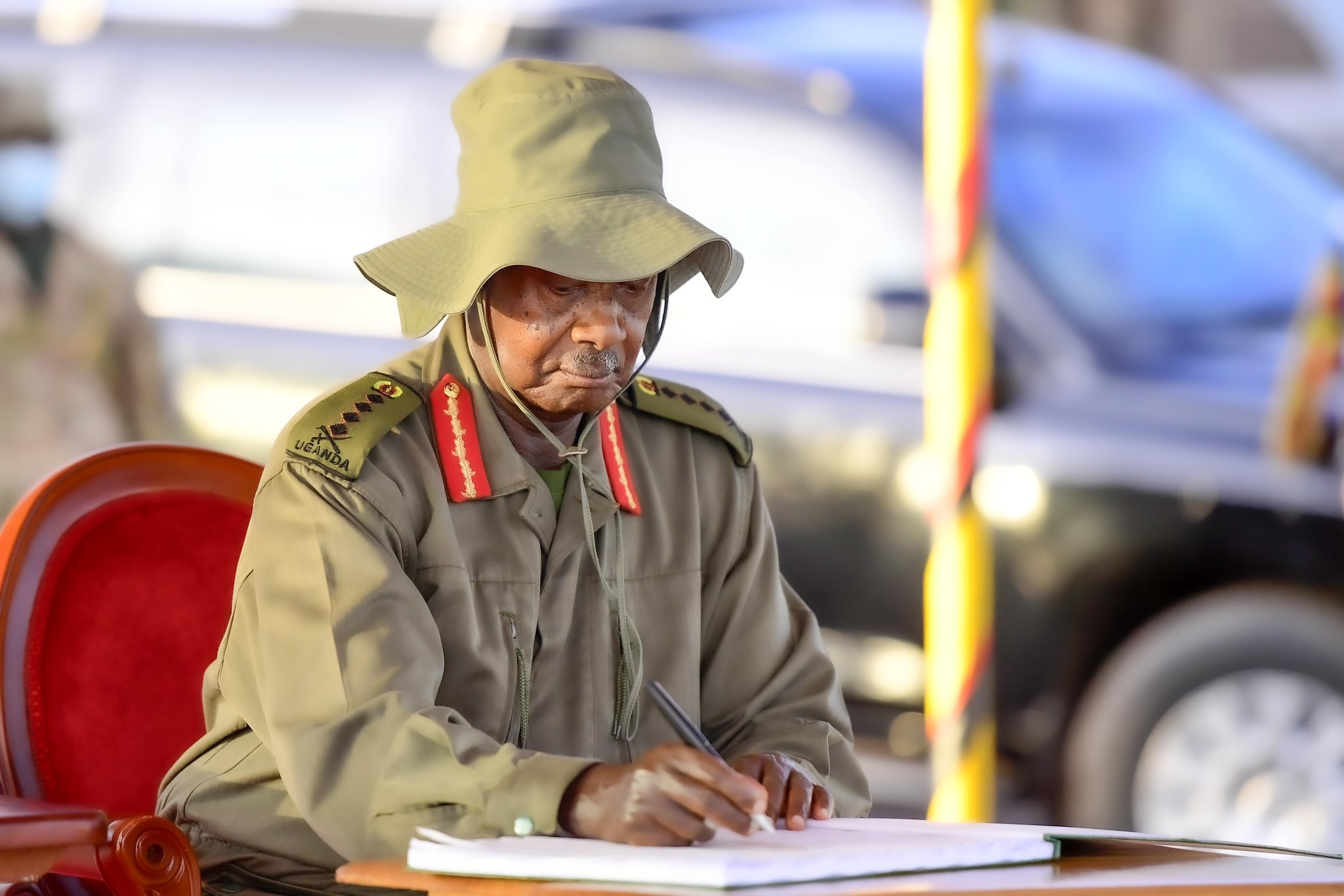Opinion
The only trouble with Uganda: Leaders who overstay in power
By Godwin Muwanguzi
On January 26, 1986, after General Y.K. Museveni, a staunch revolutionary and patriot, had liberated his beloved country from tyranny, he stood on the parliamentary steps and spouted off, and I quote, “The problem of Africa in general and Uganda in particular is not the people but leaders who want to overstay in power.”
Indubitably, Museveni, who now enjoys retirement at his home in Entebbe—the same home many Ugandans mistake for the state house—must be bitter at his successor, who has now ruled Uganda for almost thirty-eight years, moreover, with a metallic hand.
Perchance, the hero sits at his dining table, turns on his television, and all he sees is the government’s proliferating insolence that has gnawed the country and all its political systems.
“Was this our ideal country? Why are these fools burying what we fought for?” A clump of questions minces his mind because what is happening would not happen under his watch.
General Museveni must be wondering why Uganda has regressed at a faster rate than it has progressed ever since he handed over the country to the current regime, which is nothing but a cult of mediocrity; our politics is dirtier—all we have are political dwarfs; men and women with no iota of decorum or patriotism—only immensely greedy and emptyheaded.
It is indiscipline to bother elders, but we have to accept that what an old man can see sitting down, the youth cannot see standing. General Museveni should return from retirement so he can restore Uganda’s democratic dignity, which, as of now, withers away like wind.
For the love of his country, he should guide the current regime—he should remind them why he went to the bush. Was it not for government security operatives killing and abducting Ugandans? Didn’t he go to the bush to fight against vote rigging?
Was it not for Obote’s lack of accountability, where officials, including in-laws purloined coffee funds from local Ugandans and instead warned whistle-blowers against pursuing the thieves? What about employing illiterate relatives and wives as ministers, even when they were ignorant about ministerial work?
Currently, Uganda is no better, and now that Museveni is out of active politics, we recognise his heroism, yet no one could see his contributions when he was still president. Indeed, you never miss your water until your well runs dry.
Of course, Museveni wouldn’t tolerate the current political amateurism. How could he watch the president’s son in army uniform, organise political rallies, and flout the army code of conduct by pronouncing his intentions for the presidency?
Our hero wouldn’t condone extravagant leaders who waste public funds on trivial personal matters like throwing sacks of money at voters, buying lickspittles to justify the regime’s political mess, or employing thousands of relatives and friends in the state house at the expense of taxpayers, while hospitals are empty of medicine.
Since General Museveni quit leadership thirty-eight-years ago, there has been a swift downswing in the country’s leadership under a single government—corruption has soared—and now its name is NRM; state cruelty and dehumanisation of citizens have become a form of justice, and the constitution has been raped, murdered, and abandoned without a proper burial.
Decency, be it political, religious, social, or cultural, is now archaic, which wasn’t the case with Museveni’s government—people, as long as they are glued to the ruling government, have a licence to say or do whatever they deem fit and still walk away with stainless hands—the lawmakers are the lawbreakers.
As of today, dungeons are of more importance than the country’s health system; our education no longer matters—after all, it is easy to manipulate an illiterate populace; land no longer belongs to natives in some regions; national resources are no longer national but personal; our forty-year-old roads are now trenches—and our future is secured—people survive on hope.
Sadly, we are so hitched to fighting the abyss of the country’s political cancer and nonentity that we give no credence to what our former president, Mr Museveni, presumed was and still is Uganda’s problem.
This country’s muddle is not the change-thirst people whom many government glitterati and legatees have accused of hooliganism for fighting for their rights—advocating for a better nation—but leaders who think Uganda is a prerogative that only one relinquishes after one’s death.
Authentically, leadership is like iron—it becomes rusty with time, and if you insist on sharpening it, it breaks; leadership is a dance, and the longer you stay on the stage, the more monotonous it becomes.
So, the only trouble with Uganda, as Mr Museveni put it, is a failure of leadership sprouting from the overstay of leaders in power, yet only through effective governance and with the right leaders could our country resolve its inherent problems: tribalism, lack of patriotism, social injustice, the cult of mediocrity, indiscipline among politicians and security forces, corruption, and nepotism.
By Godwin Muwanguzi (Novelist & Poet)
godwinemuwanguzi2007@gmail.com





































